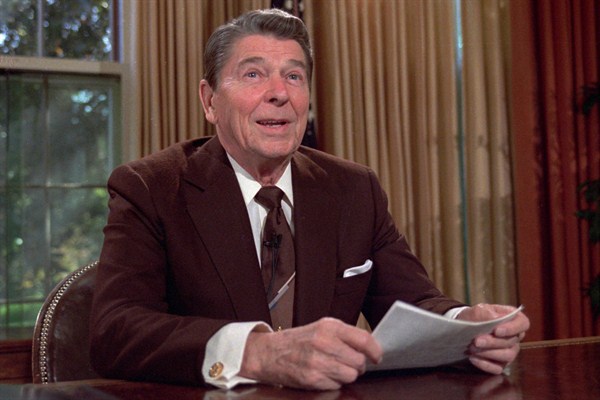U.S. President Donald Trump has reportedly approved the core elements of what will be his first official National Security Strategy, known within the government as the NSS. If true, it will be an impressive accomplishment. The difficult coordination needed to get agreement on the NSS within an administration, given the painful fine-tuning of every word, means that few presidents have produced one during their first year in office.
In a speech last week at the annual Ronald Reagan Defense Forum in California, Trump’s national security adviser, H.R. McMaster, hinted at the major themes of the forthcoming strategy. Comparing today to when President Reagan took office in 1981, McMaster said that American foreign policy needs a “dramatic rethinking” to refocus on protecting the homeland, advancing American prosperity, preserving peace through strength and enhancing U.S. influence.
Further evoking Reagan, McMaster stressed that the new strategy would reclaim “strategic confidence”—a clear reference to Trump’s insistence that his predecessor, President Barack Obama, was too timid when confronting security challenges. The message was that the major problems with American security policy are a lack of will and a failure to prioritize U.S. national interests.

